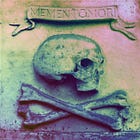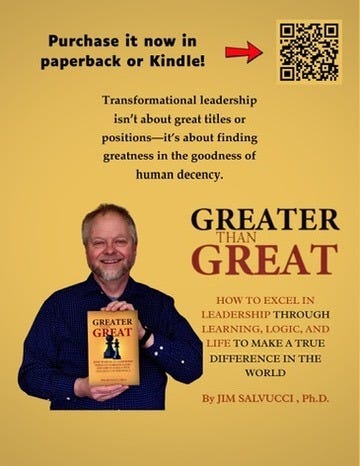We live, we die, and the wheels on the bus go round and round.
Have you ever considered the consequences of getting hit by a bus? I’m not referring to the delightful prospect of a lengthy recuperation in a hospital, luxuriating as professionals cater to your every need. I mean the advantages of thinking about and anticipating random mishaps and reversals.
Great leaders think about legacy—what values and behaviors they’re passing down over the long haul, to whom, and how those recipients will carry what they learn into the future. Only this way can leadership have a positive effect beyond the immediate. Like all aspects of leadership, legacy thinking is imperfect, but it’s always preferable to the toxic bequest of bad bossing.
Leaders also think of what they pass down in the here and now, what they can teach their team members about the leader’s job. Doing so not only helps with emergencies and succession planning, but it’s also an aid to delegation. Furthermore, it contributes to a healthy culture of transparency.
Some object that keeping team members informed will burden them with unnecessary knowledge and an undue sense of responsibility, which will only upset and distract them. I found instead that my team members wanted to know what I did and how and therefore were better prepared to do their jobs (and to help me do mine) than teams where the members were cordoned off from their manager and from information.
But let’s put aside silly, siloed bosses who intentionally withhold operations information from their employees. Even well-meaning leaders can get too caught up in the day to day to consider the degree of their transparency. Worse still, that focus on the immediate makes it impossible for them to attend to even the near future. Far from building a legacy, they never even think about who might replace them in an emergency.
To curb this short-term thinking and point up the importance of informal succession planning, I have long applied the hit-by-a-bus standard. The standard is simple and clean even if the reality of a calamitous bus misadventure is quite messy.
Here’s how it works. You just wonder, “If I got hit by a bus today, who could do this job?” I also asked the same question about my lieutenants and other team members. Who could replace them in a jam?
While no one I know ever got hit by a bus—well, except my friend Gerry when we were kids, and he came out okay I guess—the thought is both clarifying and sobering. Indeed, there were plenty of times when someone was out of commission temporarily or even permanently, and we had to find a substitute quickly. Since I assured that everyone pretty much knew everyone else’s business, we always had a go-to replacement who could readily be brought up to speed.
My teams achieved this by developing an ethos of openness that discouraged territorialism and played down individual glory. In other words, no one owned anything, and no one was more important than anyone else, including me.
Thinking about replacing people induced us to communicate and practice our values so that every team member understood and participated in our organizational ethos. Ironically, because doing so established a culture of openness, planning for people to leave and how to replace them probably reduced turnover. The more we considered what to do if people left, the less often they left.
Still, the odd emergency did happen even if no one ever actually got pancaked by public transit. I encouraged my lieutenants to develop talent and to delegate. They quickly learned that the anti-delegation arguments that “everyone’s too busy” or “I’m the only one who can or should do this” didn’t cut it with me. Once they delegated properly, they easily saw the advantages as did their team members.
Not the least advantage was that others could just pick up the slack if they got hit by that proverbial bus. Also, because of our open sharing, my lieutenants and I could largely fill in for each other in a pinch, and there were plenty of pinches. You can label this “cross-training” and make it some big formal thing, but mostly it just had to do with our openness and attentiveness to each other. In other words, being true colleagues.
All this planning and effort came to a head toward the end of my last “real” job. I was a fairly new vice president of a struggling college and found myself at loggerheads with my boss, the president. She clearly regretted hiring me—an avowed change agent—because although she liked the idea of change, she loathed the reality of it. Even when change paid dividends, she couldn’t stomach it.
In fact, those dividends turned out to be my undoing. I had asked my lieutenants—the deans—to alter our course schedule to eliminate waste in a long-broken system. We did all this with the full knowledge of the faculty, the president, and my colleagues. When I announced our success and the tremendous savings we achieved with minimal disruption, the president instantly became hostile toward me and soon sent me packing. I was, figuratively, smushed by a bus.
Being rash and inept, she hadn’t planned what to do next, so—imagine!—she asked me who should replace me. I could have sandbagged her or misled her, but I immediately presented the names of three of my lieutenants along with their pros and cons. She expressed genuine shock that I was so prepared under the circumstances. I reminded her that I was an actual professional albeit one with a bus on his chest. Afterward she selected my top recommendation, and that worked out pretty well from what I understand.
As ugly and unfair as that experience was, I could easily make such an assessment of my lieutenants because I had considered the possibility of something happening to me even if I didn’t foresee the actual event. While I loathed the cruel and incompetent president, I wished no harm on the institution, the faculty and staff I had led, or anyone who replaced me. Therefore, I did the right thing and offered fair recommendations under the most disconcerting and painful of circumstances.
Ultimately—and I apologize for the irony of seeming to blow my own horn here—planning to get hit by a bus is an act of genuine humility and an exercise in building trust. You have to swallow your pride and admit that you’re not all that due to one simple and irrefutable truth: you’re not all that.
It’s also a powerful message to team members that all are equal and that anyone could step up to do another’s job. When you recognize your own replaceability, you don’t instantly make yourself replaceable. Just the opposite. You merely embrace a larger truth: that all is temporary and that all we offer during our life is the legacy of our actions.
There’s another advantage to applying the hit-by-a-bus standard. It’s an exercise in letting go. Just as a pedestrian who interacts with the frontend of a charging bus will likely end up helplessly writhing there on the macadam, the standard reminds us that we’re relatively helpless in the face of challenges. We can rise to or flee from them, but we can’t control them.
Hit-by-a-bus, when taken seriously, also helps us practice memento mori, the ancient notion that remembering our finitely temporal existence helps us appreciate that existence all the more. As poet Wallace Stevens wrote, “Death is the mother of beauty.”
Hit-by-a-bus not only aids succession planning, legacy planning, and delegation, but it also contributes to building a culture of openness, support, and collaboration. In addition, it reminds us of the futility of control and of the fleeting time we have to achieve anything. It employs humility and even vulnerability and serves as an important lesson for managers and their lieutenants and other team members.
All that from a slightly flippant analogy about someone getting creamed by a motor coach. Great leaders embrace that analogy or something like it because they know that getting hit by a bus, getting sick, getting laid off, getting a new job are all contingencies we need to plan for—not control, but anticipate. That said, please do be careful as you cross the street today.
Speaking of buses, maybe next time we could consider the perils of getting thrown under one. No surprise, but I have stories.…
What do you do to prepare yourself and others for unexpected contingencies? Do you face personnel emergencies with a formal plan, an informal cultural ethos, or mere hope?
Great leaders learn to anticipate the unexpected, and I can help.
Unlock the Great Leader Within! Download my free resource, the Transform To GREATness Toolkit, now!
I look forward to hearing from you.
Intro and outro podcast theme music by LiteSaturation from Pixabay.
Like the sound of my podcast?
I use Descript to record and edit, and if you record sound and video, so should you. Descript’s AI assistance has transformed my process and improved my recordings. Now editing is a breeze!
Interested? Use my affiliate link to try Descript for free: https://get.descript.com/t8zotbxmi6ds.
Try it and let me know what you think.
Need an experienced speaker or a podcast guest? Invite me!
If you want a TEDx speaker for your event or corporate training, click on my Speaker’s Page.
Looking for an articulate, dynamic, and insightful podcast guest? Check out my Podcast Guest Page.
About Dr. Sal
I founded Guidance for Greatness to mentor rising professionals after serving 30 years in higher education as an English professor, dean, and VP.
In my speaking, writing, and coaching, I blend academic credentials (Ph.D. from Toronto, certificates from Harvard and ACE) with practical coaching certifications (Tiny Habits, Thrive Global) to offer something different: leadership development built upon human decency.
My mission? To guide today’s managers to become the next generation of great leaders.
I offer practical, values-driven strategies so that managers can lead authentically.
Why? Because great leaders aren't just effective managers—they're teachers whose example makes a true difference in the world.
It’s here!
Are you tired of paging through unchallenging guru-driven leadership tomes! For a more pragmatic take on leadership, grab a copy of my new book, Greater than Great: How to Excel in Leadership through Learning, Logic, and Life to Make a True Difference in the World, out now!
Grab a copy for yourself and for that special leader in your life (or your lousy boss)!
And let me know what you think about my talk for TEDxClarkstown!
















